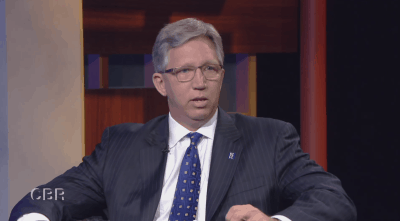I grew up in the Charlotte-Mecklenburg School System. Jay Robinson was my superintendent, and he was beloved. I attended Irwin Avenue Elementary, First Ward Elementary, McClintock Middle School, and East Mecklenburg High School. In high school, I had the opportunity to take classes at Central Piedmont Community College. It is in large part my personal experience that leads me to believe CMS is capable of doing great things.
The next 18 months are critical for this district with 168 schools and 8,611 teachers serving more than 140,000 students.
Systemic change is being driven in CMS by three factors: a community conversation about the resegregation of the schools, revamping the student assignment process, and leadership transition.
Ann Clark, superintendent of CMS, titled her State of Our Schools address “This is Our Moment.” She is right. This is your moment. But if these conversations happen in siloes or without transparency, CMS will not make the most of this moment in time.
Resegregation
Early this year, a book entitled, Yesterday, Today, and Tomorrow: School Desegregation and Resegregation in Charlotte, was published. It is a look at Charlotte’s experience with desegregation, resegregation, and economic development.
One of the editors, Amy Hawn Nelson with UNC-Charlotte’s Urban Institute, says a third of Charlotte-Mecklenburg schools today are segregated by poverty, half are segregated by race, and a fifth are hyper-segregated by race.
Segregated schools, she says, lead to inadequate facilities, lack of access to high level coursework, poor teacher quality, and lower graduation rates.
“The outcomes are clear. Segregated schools don’t work.”
But it’s not just a racial issue. Nelson says the income achievement gap is nearly twice the size of the black-white achievement gap.
In May, an event sponsored by UNC Charlotte drew a standing room only crowd of more than 300 people.
Student Assignment
The Charlotte-Mecklenburg Board of Education recently held its first of many meetings about the student assignment review that will happen over the next 18 months.
The board doesn’t plan to vote on school boundaries until sometime in 2016, but members are trying to prepare the community now for the conversation.
Already many in the community want to use the student assignment review as an opportunity to address other issues within CMS, such as poverty, race relations, and academic achievement.
The board has tentatively targeted next November for a final decision on the new boundaries, which would take effect the following school year.
Leadership Transition
In October 2014, larger-than-life superintendent Heath Morrison resigned suddenly and unexpectedly.
In January 2015, Ann Clark was named superintendent until 2016. The CMS Board has started the process of searching for a new superintendent, and the hope is to have one in place by April 2016.
The shadow of Morrison’s departure looms large in this process, and transparency will be even more important if CMS is going to emerge as a national leader.
Because the circumstances of Morrison’s departure remain unclear, the onboarding of the next superintendent needs to be crystal clear.
Confidence in the process of choosing the next leader will be as important as confidence in the next leader chosen.
The Future of CMS
Three tough issues face CMS, and the issues need to be addressed collectively and with transparency.
It won’t be easy. The conversation needs to be structured in a way that includes as many people as possible — left and right, the charter school community, the home schooling community, private schools, young and old, low wealth and wealthy and everybody in between, all races and ethnicities, CPCC and UNCC, and the business community.
Civic dialogue will make a difference here.
CMS can emerge from the conversations and decisions that will be made in the next 18 months as an innovative, national leader in providing a high-quality education to all students in an urban setting.
Lessons will be learned that will benefit CMS, North Carolina, and the nation.
This is your moment.



